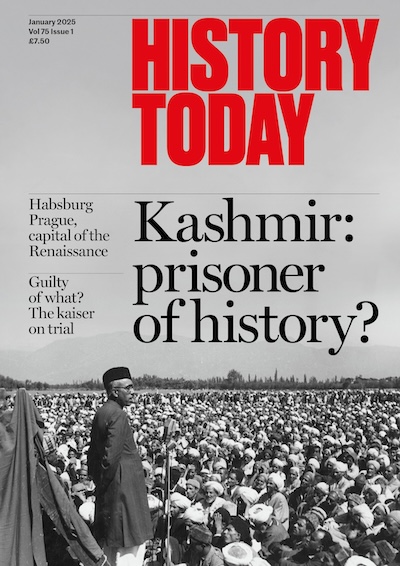Belgium's Heart of Darkness
King Leopold II’s personal rule of the vast Congo Free State anticipated the horrors of the 20th century, argues Tim Stanley.

When I was a boy we used to play a car game called Name Five Famous Belgians. The game speaks to a lazy stereotype among Britons that Belgium is a country without history or character, lost somewhere between France and Germany.
How extraordinary it was to discover, then, that one of this small state’s kings was also one of history’s greatest mass murderers. Leopold II (1835-1909) wanted his country to join the league of European empires, but the Belgian state refused to finance its part in western Europe’s expensive scramble for Africa. So they outsourced the task to Leopold, who used personal diplomacy to convince the European powers to grant him control of a large portion of the Congo basin. He promised to bring civilisation to the so-called dark continent.
Christened the Congo Free State in 1885, Leopold’s playground was an astonishing 76 times the size of Belgium. Comprised largely of unmapped jungle, it was initially a huge financial burden. But when worldwide demand for rubber boomed, Leopold cashed in. Congolese workers were sent out into the jungle to slash down vines and layer their bodies with rubber latex. Later they would scrape it off their skin – often taking flesh and hair with it. The work was labour-intensive and injurious to health; the only economical way to collect it was via the forced mobilisation of Congolese society. The Congo Free State evolved from a vanity possession into a slave plantation.
Leopold’s hell operated by an insane logic. Villages were set quotas of rubber and the gendarmerie were sent in to collect it – a process that was sped up by looting, arson and rape. If a village failed to reach its quota hostages would be taken and shot. To ensure that the gendarmerie didn’t waste their bullets hunting for food, they were required to produce the severed hands of victims. As a consequence a trade in severed hands developed among the villagers and those police that couldn’t reach their quotas.
The most famous account of Leopold’s Congo is Joseph Conrad’s novel Heart of Darkness (1899). With its grisly, bloody imagery, one might imagine that Conrad exaggerated the awfulness of the regime. In fact the cold details of missionary journals make even more horrifying reading. William Henry Sheppard, a Presbyterian missionary, recalled in his diary passing by more than a dozen burned villages. He was taken to the headquarters of a gendarmerie recruit called Mlumba Nkusa, described by Sheppard as ‘a most repulsive looking man’ because his teeth were filed into sharp points, his eyebrows were shaven and his eyelashes plucked out. Leopold had demanded that Mlumba collect 60 slaves and a huge amount of rubber, but only eight slaves and 2,500 balls of rubber had been gathered. ‘I think we killed between 80 and 90,’ said Mlumba of the local workers. He took Sheppard to a hut reserved for the rape of hostages and to another for the preservation of collected hands. Sheppard counted 81 hands hanging over the fire.
The Congolese horror ended when international outrage compelled the Belgian state to take control of the colony in 1908. Estimates for the number of people killed range between two and 15 million, easily putting Leopold in the top ten of history’s mass murderers. When he died in 1909 the king’s funeral cortege was booed.
Conceptually Leopold’s reign of terror was a bridge between the imperialism of the 19th century and the totalitarianism of the 20th. Like most other empires it began as an exercise in piracy. But the sheer scale of the terror, the role of bureaucracy and the near-genocidal numbers of dead draw comparisons with Hitler’s Lebensraum and Stalin’s war on the Kulaks. The motive was greed rather than ideology, but the organised slaughter and the racist assumptions behind it make it recognisable to those old enough to remember the siege of Sarajevo or the Rwandan genocide. It is a reminder of the many forgotten horrors that lace the narrative of imperialism. The problems that African nations have endured since independence should be contextualised by the lingering trauma of colonisation at its most exploitative. Perhaps its greatest evil was that it concentrated power over so many into the hands of so few – allowing one wretched Belgian to ravage a continent.




